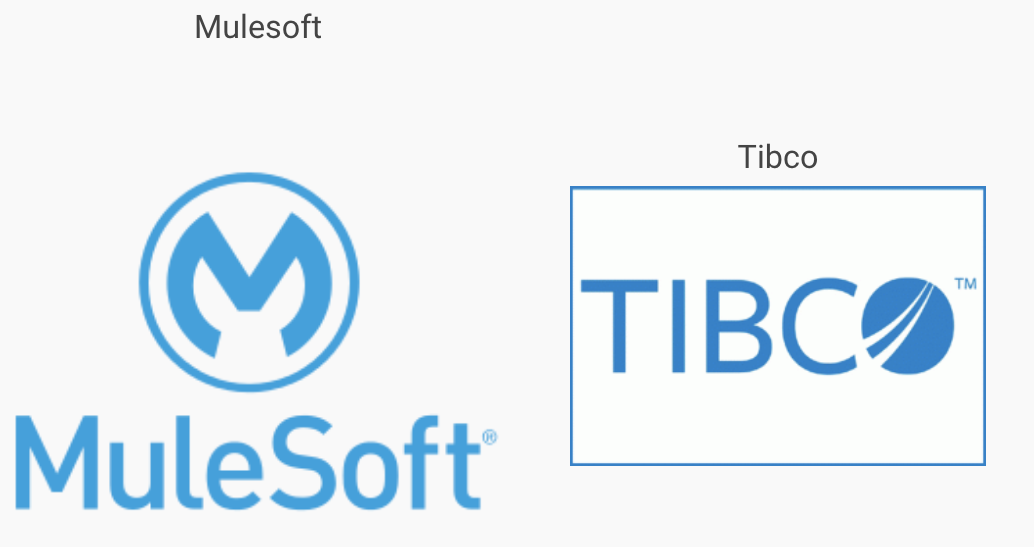MuleSoft allows organizations to easily integrate apps, services, systems, and more. MuleSoft’s robust integration solutions create connectivity and ensure seamless business integration, allowing businesses to meet the needs of customers better and boost new business. And it is one of the top integration platforms. So it’s no wonder that it’s become a career option for young developers. Kick-start your career by joining Mulesoft Training. In this article, let us compare Mulesoft with Tibco, discover their differences, and know which one is better. Before comparing them, let us know about them briefly
What is Mulesoft?
MuleSoft is a provider which offers an integration platform to assist businesses to connect applications, data, and devices on the cloud and on-premises environments. Mulesoft’s Anypoint platform provides various tools for developing, managing, and testing application programming interfaces (APIs) that support these connections. Mule is a Java-based ESB (enterprise service bus) that enables applications to connect through integration templates, built-in connectors, and drag-and-drop functions. It offers a consistent platform for everything you need. Integrates data and applications from existing systems to SaaS applications APIs. It started as an open-source ESB and now pretends to be the most widely used ESB globally.
What is Tibco?
TIBCO is a software company that provides business software for integrating, effectively managing, and assists monitoring enterprise applications, information delivery, etc. The objective of TIBCO software is to assist business partners in coordinating the business process as well as the activities easily. The special feature of Tibco is the safe and secure exchange of information, management of distributed systems, and the creation and maintenance of XML documents. TIBCO products include TIBCO Business Works, Business Connect, Hawk, EMS, etc.
An integration platform, TIBCO ActiveMatrix BusinessWorks enables you to build scalable, flexible, and easy-to-use integration projects. TIBCO Designer GUI is used for defining business processes within TIBCO ActiveMatrix and TIBCO ActiveMatrix BusinessWorks, BusinessWorks process engine, carries out the business process. TIBCO Administrator, a web-based GUI to monitor and manage runtime components, also supports TIBCO ActiveMatrix BusinessWorks.
Features of Mulesoft:
- Connect to primary systems more quickly
- Minimizes the risk and cost associated with security breaches
- Improve customer engagement
- Future proof organization
- Enhancing Agility
- Always keep yourself open for business
- Shifting to the cloud at a huge speed
- Go to the market faster
- Reduce development costs and speed up delivery
- Enhance project quality
- Reduce costs for maintaining integration and applications
Features of Tibco:
- It is extensively used to provide flexibility, reliability, and scalability
- Facilitate the quick development of application
- Easily integrates alternative message-oriented middleware, distributed systems, and databases.
- Able to deal with multiple exceptions.
- Simple and effective for transforming data at the receiver.
- A common framework helps to speed up and simplify the process in real-time.
- Route and transform data in the appropriate format to the respective destination.
Comparison Between Mulesoft and Tibco:
Now let us compare Mulesoft and Tibco and find out their differences.
Data Transformation:
For data transformations, MuleSoft uses a mule-specific language and is referred to as MEL (Mule Expression Language). While in TIBCO BusinessWorks, data Transformations are carried out using XPath functions. In Mulesoft, DataMapper supports the formats like XML, JSON, CSV, Pojo, Fixed Width, etc. While TIBCO BusinessWorks, the data mapper supports only XML. However, some other activities may be used for supporting other formats.
Routing:
For routing, Mulesoft has an in-built feature known as “Choice Flow Control,” while TIBCO BusinessWorks makes use of conditional transition. For condition expression, MuleSoft uses a mule-specific language and is referred to as Mule Expression Language, While for TIBCO BusinessWorks, conditions should be given in X-path. The query string in the previous example can be analyzed with the integrated functions of Mulesoft. However, TIBCO BusinessWorks requires explicit parsing of the query string.
Service Orchestration:
REST support is built into MuleSoft, but TIBCO BusinessWorks needs a separate plugin. However, the “HTTP Send Request” activity within TIBCO BusinessWorks may be used for calling REST services.
Exceptional Handling:
MuleSoft comes with a feature that enables you to set other tactics to use. The strategy may be defined as a shared setup to which all flows can refer. On the other hand, TIBCO BusinessWorks does not have a configuration that can be shared as a global exception handling mechanism. But a shared library, as well as a common process, can offer similar features. MuleSoft is provided with an integrated default exception approach that can be personalized.
This strategy will be useful where exceptions are not specifically addressed in every flow. Exceptions must be dealt with in every TIBCO BusinessWorks startup process, and it is impossible to set logic for handling default exceptions if they are not. Every service has its advantages and disadvantages; only an experienced business service provider can analyze your business and organization requirements in-depth to compare enterprise integration providers and deliver the best solution.
Conclusion:
When we compare both these solutions Mulesoft and Tibco, Mulesoft Anypoint Platform is easy to set up, use, and administer. Doing the business using Mulesoft is highly preferred to Tibco. TIBCO Cloud Integration (including BusinessWorks and Scribe) is better suited to the needs of the company compared to the MuleSoft Anypoint Platform. When we compare the quality of the continuous product support, then Tibco will be the better option. For the roadmaps and feature updates, the Mulesoft Anypoint Platform’s direction is preferred compared to Tibco Cloud integration. All the above are some of the differences between Mulesoft and Tibco. The organizations may choose either of them based on the requirement they have.
Follow Technoroll for more!






